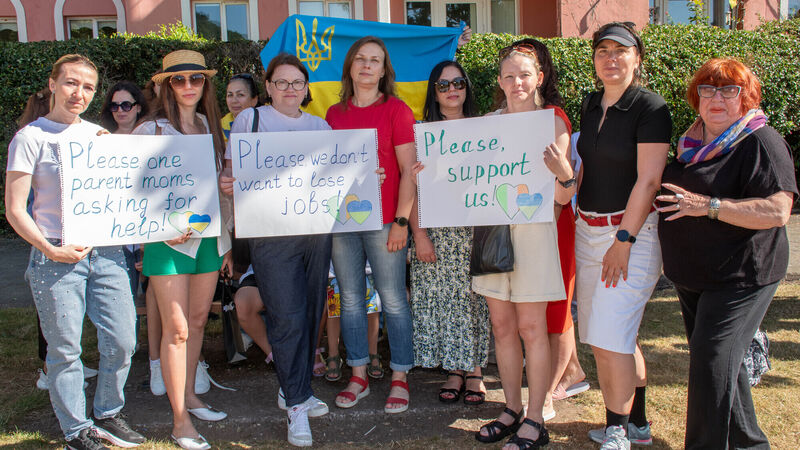'It’s going to be so traumatic to lose them': Youghal rallies round Ukrainians set to be relocated

Some of the Ukrainian people who have made their home in Youghal since the Russian invasion. They now face losing their jobs and having their children uprooted from local schools. Picture: Howard Crowdy
With one business owner set to lose a third of his workforce, the eviction of 400 Ukrainians from Youghal, Co Cork, has come as a hammer blow to employers in the East Cork town.
With just days to go until their scheduled eviction on July 31, residents of the Quality Hotel in Youghal made one last plea to remain in situ — and to safeguard their livelihoods.
















